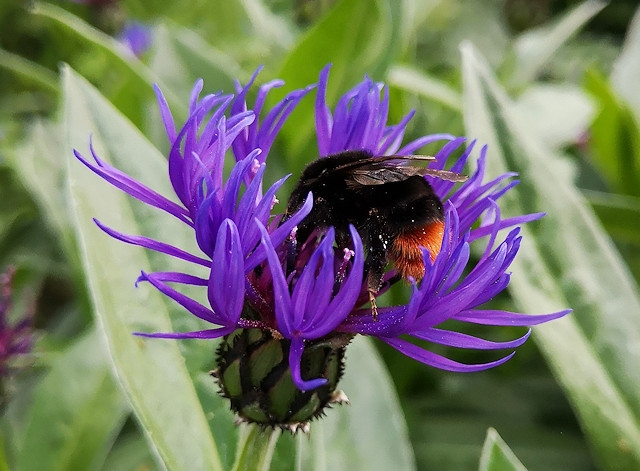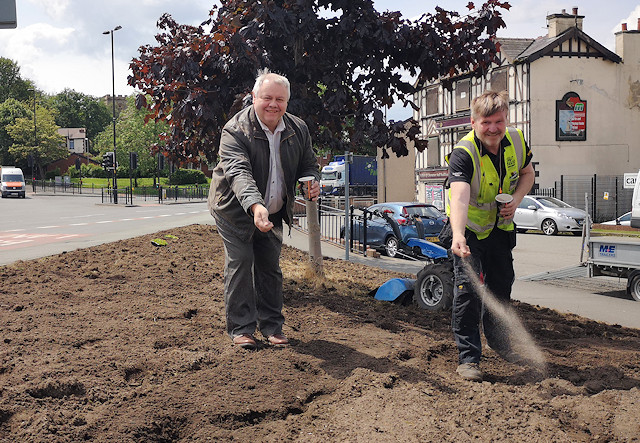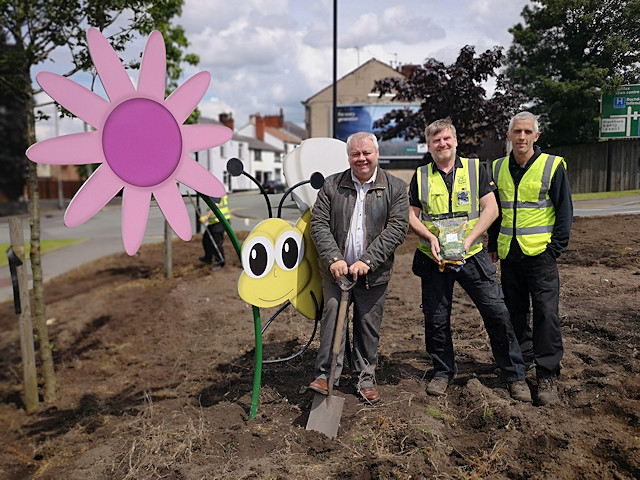Flowering grass verges planted in the borough
Date published: 14 June 2019

Red-tailed bumblebee on a wildflower
The borough of Rochdale is taking a stand and creating flowering grass verges to help stop the worrying decline of bees and other insect pollinators.
The council is leading the way with a scheme to improve biodiversity across the borough and has already been contacted by other councils wanting to follow in its footsteps.
Seeding of informal flowering lawns, clover verges and wildflower meadows has started at 16 sites, with more to follow this autumn. The chosen sites are in semi-rural areas where the lawns are in keeping with land management styles.

The new lawns and verges will grow at lower levels, and include flowers producing a hint of colour in the summer and providing a green matt in the winter. Over time the verges will need less cutting, reducing costs through reduced traffic management needs and will deliver a higher quality roadside environment.
The European Commission states that one in ten pollinating insects is on the verge of extinction, and a third of bee and butterfly species is declining. According to the Royal Horticulture Society, one of the biggest problems for pollinators is a lack of flowering plants, especially those packed with pollen and nectar.
Pollination by bees is said to be worth over £400m per year as crops need insect pollination to produce good yields and quality fruit.

Councillor Neil Emmott, cabinet member for environment, came to see the seeding at Sudden junction.
He said: “Seeding pollinator-friendly flowers might seem like a small step but it actually has a huge impact on our bee population. The grass verges will form natural corridors for bees and insects and will crucially allow entire ecosystems to flourish. It’s not a quick fix though. It will take a couple of years for the verges to bloom in the way that we want them to but it will be worth the wait.”
The council is already working to preserve and create habitats where pollinators and other insects can thrive. The Roch Valley outdoor learning centre uses informal planting schemes with plants that are rich in nectar, and uses natural ponds to create diverse habitats.
Do you have a story for us?
Let us know by emailing news@rochdaleonline.co.uk
All contact will be treated in confidence.
Most Viewed News Stories
- 1Royton haulage firm fined after Rochdale dad went to work and didn’t come home
- 2Six men arrested in Rochdale child exploitation investigation
- 3Rochdale church to host Camerados public living room
- 4Suspended council candidate was ‘politically naive’ for appearing in George Galloway video, leader...
- 530 years of the GEM Appeal, a Rochdale-founded charity that has raised millions and changed the...
To contact the Rochdale Online news desk, email news@rochdaleonline.co.uk or visit our news submission page.
To get the latest news on your desktop or mobile, follow Rochdale Online on Twitter and Facebook.


